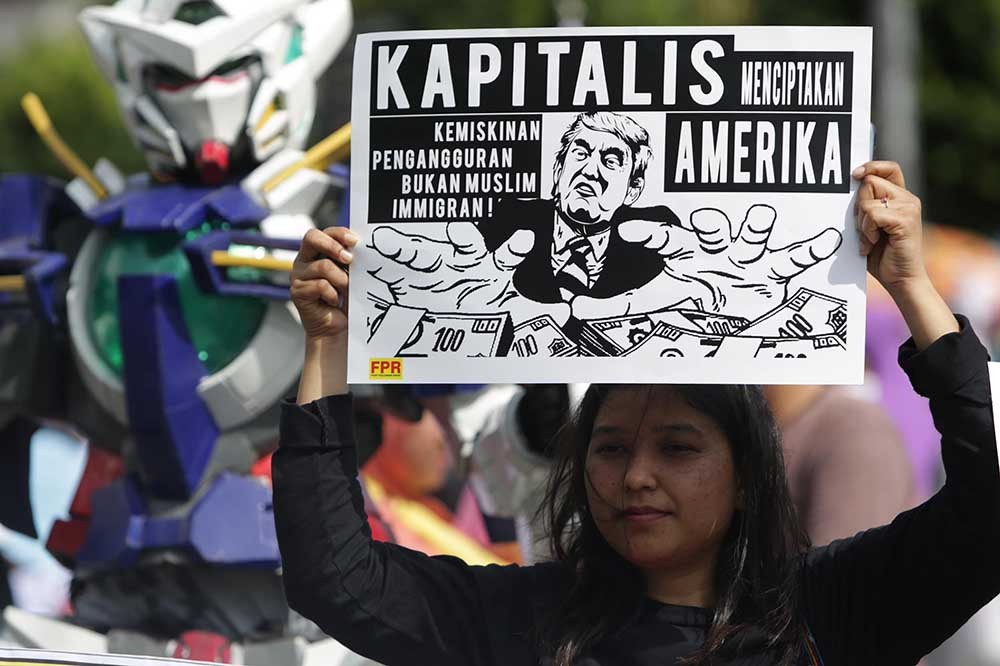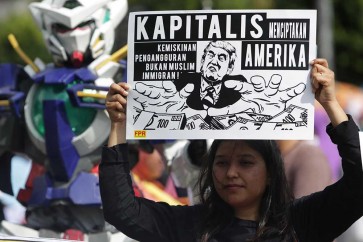Popular Reads
Top Results
Can't find what you're looking for?
View all search resultsPopular Reads
Top Results
Can't find what you're looking for?
View all search resultsReducing the Trump effect
It is really worrying that the World Bank has revised its 2017 global economic growth forecast to 2.7 percent, far lower than the world’s estimated economic growth of 3.1 percent in 2016.
Change text size
Gift Premium Articles
to Anyone
I
n 2016, the global economy was shocked by very powerful political earthquakes in the form of the victory of the Brexit vote in the United Kingdom and the election of Donald Trump as the 45th US president.
A political tsunami occurred because the failure of the elites to respond to populist discontent over the political uproar in the prevailing modern democratic system. As a result, the world is facing increasing political, security and economic risks.
Therefore, it is really worrying that the World Bank has revised its 2017 global economic growth forecast to 2.7 percent, far lower than the world’s estimated economic growth of 3.1 percent in 2016.
The major factor of intensifying global economic risks is the Trump effect. Mexico became the first casualty even before Trump's inauguration whereby Ford canceled its plan to move its Lincoln plant in Kentucky to Mexico; whereas the plant in Mexico was almost finished and equipped with infrastructure facilitated by Mexican authorities. Furthermore, Trump has threatened General Motors with additional import taxes of about 45 percent in the importation of Chevrolet Cruzes from Mexico.
China will certainly become Trump’s second casualty after Mexico. Manufactured products that can be produced in the US but are made in China will be subject to additional import tax ranging from 30 to 45 percent. As a result, products imported from China to the US will not be competitive. Certainly, there will be industrial migration from China to the US if there is no change in policy and strategy.
The signs in direction have been revealed by, among the other things, the appointments of key officials in Trump’s Cabinet whose vision is to "make America great again." Trump has assembled a team of like-minded senior trade advisers to plan the attack. From Peter Navarro as director of the National Trade Council to Wilbur Ross as commerce secretary, Robert Lighthizer as US trade representative and Rex Tillerson as secretary of state, the new administration’s anti-China biases are without modern precedent.
As such, the question is whether Trump will be able to change the deficit in the US current account balance to a surplus balance by pressuring China. The answer is no. Because the main problem of the US economy is a prolonged huge saving investment gap in which US savings are far less than investment and have been for a long time. During this time, the US had a deficit trade balance with 101 countries. Therefore, pressuring China will only divert trade imbalances to other trading partner countries.


















